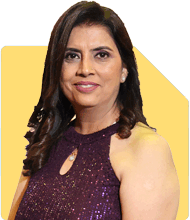I have completed my BE in Mechatronics in 2016. Then i started working in embedded electronic segment. But now i want to do masters from USA with top universities in power electronics. What is process. Which university will be best. Is power electronics will be good choice as academically i am from mechatronics background but professionally i am from embedded and power domain.
Ans: Hello,
To begin with, thank you for contacting us. I am glad to hear about your plans on pursuing a Master's degree in the USA. As an answer to your question, I would like to let you know that it is indeed possible and rather a fruitful step to shift from a Bachelor's degree in Mechatronics to a Master's degree in Power Electronics in the United States. Take the following steps into consideration.
1. Conduct a thorough study and choose: As the first step in the process, I would recommend that you conduct an extensive study on the field of your choice i.e. power electronics and take into account the employment possibilities it has to offer. Although you have a background in mechatronics as previously mentioned by you, you should make sure that the field of power electronics matches your career objectives and interests, and for the same, I suggest that you get in touch with field experts as they will be able to advise you better.
2. Select Universities: There are a number of universities that are renowned for their programs in the field of power electronics. I recommend that you conduct a comprehensive study and list universities. University of Illinois Urbana-Champaign, Massachusetts Institute of Technology, University of California, Berkeley, Stanford University, and University of Michigan are among the prominent ones. In addition, the university’s location, scholarship opportunities they have to offer, the experience of faculty members, and the likelihood of you securing admission should also be taken into account.
3. Appear for the GRE and English Proficiency Tests viz., IELTS or TOEFL: Majority of the universities in USA require students to prepare for and undertake the GRE i.e. Graduate Record Examination. You may also be required to prove your fluency in the English language through appearing for English competency tests viz. the IELTS or TOEFL, if English is not your first language.
4. Submit a Strong Personal Statement or Statement of Purpose: Next, I would suggest that you draft a strong personal statement or Statement of Purpose that outlines your reasons for wanting to pursue a Master's degree in Power Electronics, how your training in mechatronics as well as your hands-on experience in the embedded and power sectors will help you succeed, and the reasons behind selecting the universities you intend applying to.
5. Submit Academic Marksheets and Endorsement Letters: Along with the SOP, you will also need to submit your BE program marksheets, and obtain strong recommendation letters from instructors and employers who can attest to your educational and work abilities.
6. Take necessary courses: As mentioned earlier, you have a background in mechatronics and now wish to pursue your Master's in Power Electronics. To aid in your transition from mechatronics to power electronics, and to fill in the knowledge gap between your training in mechatronics and the particular demands of power electronics, you may be required to appear for certain prerequisite courses. The courses that you may be required to appear for are mentioned on the websites of the universities.
7. Plan your Finances: Studying in the USA can be a costly affair, and so I suggest that you plan your finances adequately. Take into account your financial circumstances. Also universities in USA offer ample scholarships and assistantships, look into the possible financial aid options that universities have to offer.
8. Make Applications to Universities: As part of the application procedure you will need to submit all the necessary documentation, pay the required application fees, and adhere to application deadlines. I suggest that you complete each university’s online application procedure.
9. Apply for a Visa: On receiving a Letter of Acceptance from the university, as the next step in the process, you will be required to apply for a student visa. Generally, an F-1 visa is required to study in USA. I suggest that you submit the required paperwork and adhere to all the visa prerequisites.
10. Prepare to Migrate: The final step in the process will require you to make all the necessary arrangements. Arrange for accommodation, obtain a medical insurance, and make arrangements for other requirements in the country. Understand the customs and academic standards of the country.
As an answer to your query whether power electronics is a good choice or not, I would like to tell you that as you have expertise in the power and embedded sectors, this field can be a fantastic one. Different sectors viz., electric vehicles, renewable energy, consumer electronics, etc. all depend on the field of power electronics. As mechatronics frequently includes the combination of mechanical systems, control systems, and electronics, your knowledge in the field of mechatronics can offer a distinct viewpoint.
Lastly, the university that you select should resonate with professional ambitions and research pursuits with the filed of power electronics. I would suggest that you conduct a thorough study on not only the courses but also the expertise of the faculty members at each university to ascertain which one best suits your educational and professional goals.
For more information, you can visit our website.
























